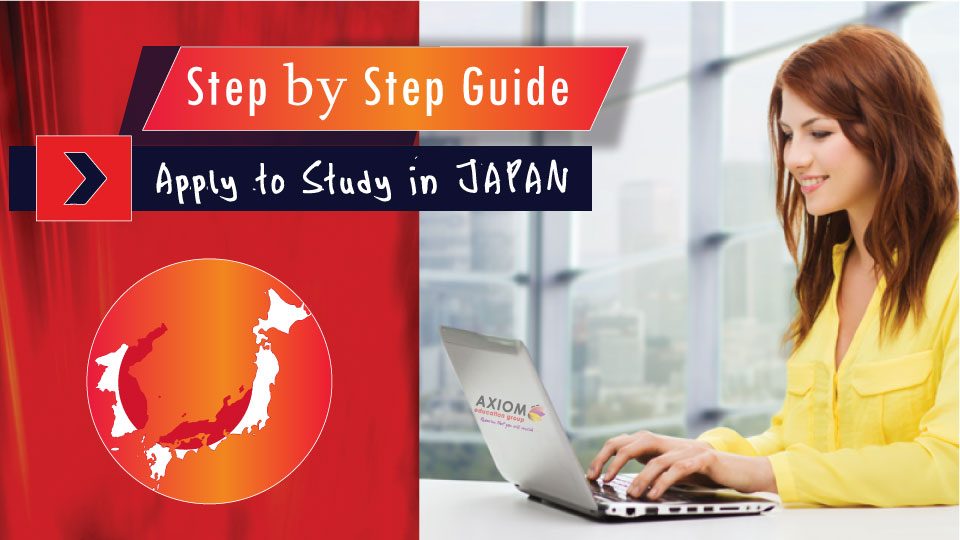
Are you excited about studying abroad in Japan, but not sure how the education system is organized? Here’s everything you need to know about the structure of Higher Education in Japan.
Not having the correct Application and immigration documentation can create a lot of hassle, and in the very worst case, can result in you being removed from Japan before you complete your studies. Navigating the Study matter may not be the most exciting part of your study abroad preparation, but it is still absolutely essential! Let us break things down for you so you have everything covered.
Academic Year and School term System
The academic year of schools in Japan normally starts in April and ends in March of the following year. Many universities in Japan adopt a semester system (two terms), with a first semester from April to September and a second semester from October to March. Some of the universities adopt a trimester system (three terms) or a quarter system (four terms).
Applicable Status of Residence
Status of residence is categorized according to the types of activities, statuses, and positions that foreign residents are allowed to undertake in Japan. There are 30 types of statuses of residence and the one applicable to an international student for study in Japan is “College Student”. In case of the status of residence other than “College Student”, this may limit the applications for scholarships and availability of entrance examination.
| Type of Educational Institution | Period of Stay |
| Universities | 4 years and 3 months, 4 years, 3 years and 3 months, 3 years, 2 years and 3 months, 2 years, 1 year and 3 months, 1 year 6 months, 3 months |
| Junior Colleges | |
| Colleges of Technology | |
| Professional Training Colleges | |
| Preparatory Japanese language courses offered at private universities and junior colleges | |
| Exchange programs (within 1 year) | 1 year and 3 months, 1 year, 6 months, 3 months |
| Japanese language Institutions (not Including Professional Training Colleges) |
Academic Degrees, Titles and Required Study Period
| Program | Academic degrees and titles | Required study period | |
| Graduate school | Doctorate program | Doctoral Degree | 5 years |
| Master’s program | Master’s Degree | 2 years | |
| Professional degree program | Master’s professional degree | 2 years | |
| Juris Doctor | 3 years | ||
| Master of Education (Professional) | 2 years | ||
| University (Undergraduate) | General faculties, Faculty of Phar- macy (four-year program) | Bachelor’s Degree | 4 years |
| Faculties of Medicine, Dentistry, Veterinary and Pharmacy (six-year program) | 6 years | ||
| Junior college | – | Associate Degree | 2 or 3 years |
| College of technology | – | Associate | 3 years (3 years and 6 months for mercantile marine studies) |
| Specialized training college | Postsecondary course (Professional training college) | Diploma | 2 years or more |
| Advanced Diploma | 4 years or more |
Bachelor’s Degree
A bachelor’s degree is conferred upon those who have completed undergraduate studies. To graduate with a bachelor’s degree, a student must study at a university for at least 4 years (at least 6 years in the cases of medicine, dentistry and veterinary science) and acquire at least 124 credits (188 credits in the case of medicine or dentistry and 182 credits in the case of veterinary science).
Master’s Degree
A master’s degree is conferred upon those who have completed postgraduate studies in a master’s course. To graduate with a master’s degree, a student must study at a graduate school for 2 years in principle (or the required number of years for research courses or fields of specialty that have set a different standard), acquire at least 30 credits in his or her special field, as well as receive necessary research guidance and pass examinations conducted by the graduate school such as writing a master’s thesis that is judged satisfactory.
Doctor’s Degree
A doctorate is conferred upon those who have completed postgraduate studies in a doctor’s course. To graduate with a doctor’s degree, a student must, in principle, study at least 5 years in a graduate school (3 years for those who have completed a master’s program), acquire at least 30 credits, receive necessary research guidance and write a doctoral thesis that is judged satisfactory and pass an examination.
Associate’s Degree
This is the degree conferred upon graduates of junior colleges and colleges of technology.
Junior colleges: To graduate from a junior college, students must, in principle, attend the junior college for at least 2 years and acquire at least 62 credits in the case of 2-year colleges, or, in the case of 3-year colleges, attend for at least 3 years and obtain at least 93 credits.
Colleges of technology: To graduate from a college of technology, the student must, in principle, attend for at least 5 years and acquire at least 167 credits.
Technical Associate’s Degree
Graduates of post-secondary courses of special training colleges that have been accredited by the Minister of Education, Culture, Sports, Science and Technology as those fulfilling necessary requirements, such as minimum course attendance of least 2 years and a total of at least 1,700 hours of instruction, can call themselves “qualified specialists.”
Applying for a Student Visa in Japan
What you need
![]() The admission approval from the Japanese educational institution you have been accepted into (Japanese language institution, university or others)
The admission approval from the Japanese educational institution you have been accepted into (Japanese language institution, university or others)
![]() A valid passport.
A valid passport.
![]() Visa from the Japanese Embassy, Dhaka. Bangladesh. Certificate of Eligibility for Status of Residence (If already issued)
Visa from the Japanese Embassy, Dhaka. Bangladesh. Certificate of Eligibility for Status of Residence (If already issued)
Certificate of Eligibility
This form is issued to students by the Ministry of Justice in Japan. You can acquire one of these through your institution and it is the reason why you should apply for a visa through your programme. A Certificate of Eligibility will make it a lot easier and faster to get a visa.
When there is no “Certificate of Eligibility for a Status of Residence” issued
Visa application is personally submitted by students intending to study in Japan at the Japanese Embassy or Consulate in their home country. The time required to process this visa application will take longer as the application documents will have to be sent back and forth between the student’s home country and Japan.
When there is a “Certificate of Eligibility for a Status of Residence” issued
Before applying for a visa, students intending to study in Japan or their proxies will apply for the “Certificate of Eligibility for a Status of Residence” and have it issued to them at Regional Immigration Bureaus in Japan. With this “Certificate of Eligibility” in hand, students will then personally apply for visas at the Japanese Embassy or Consulate in their home country. Unlike visa application without the “Certificate of Eligibility for a Status of Residence”, this alternative has a shorter processing time.
Obtaining a visa should be done after acceptance to a specific programme, through that programme. While Japanese visas are not the most complicated visas to obtain, it is important that you have a valid visa in order to study.
You can speak to your Axiom Education Advisors in order to make sure they are assisting you in your visa process. Axiom should be able to lead you through the process and help to get your Certificate of Eligibility, Axiom always speak to the university to be sure! Make sure to begin the visa process immediately after acceptance into a programme. It usually takes two to three months to get a visa, so don’t wait!







